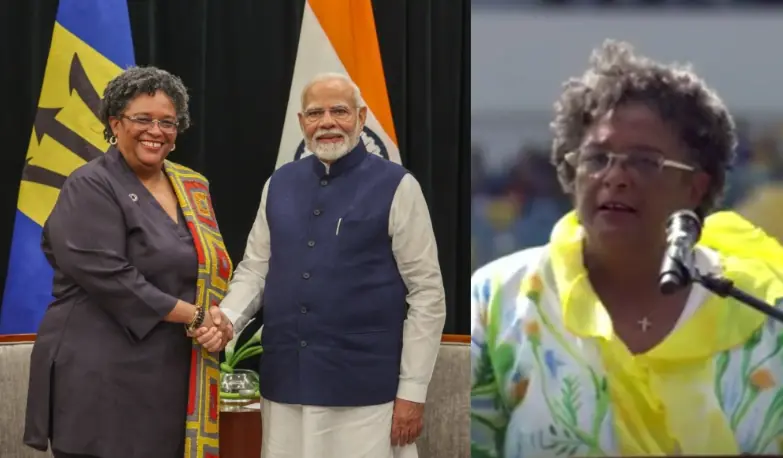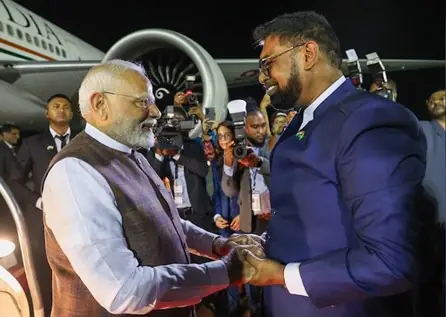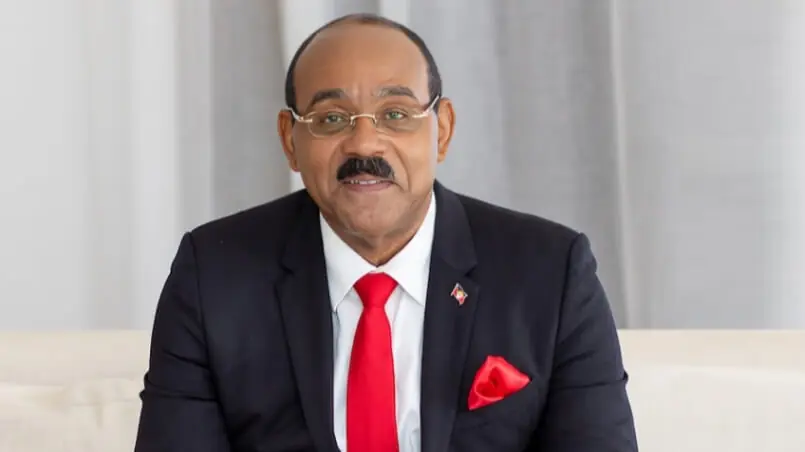China cancels Premier Li Qiang’s annual news conference
China made a controversial decision on Monday when the government announced that an annual news conference which is conducted by Premier Li Qiang, has been cancelled this year.
6th of March 2024

China made a controversial decision on Monday when the government announced that an annual news conference which is conducted by Premier Li Qiang, has been cancelled this year.
The spokesperson for the National People’s Congress, Lou Qinjian, came out with the news on the eve of the legislature’s annual session, saying that Premier Li Qiang’s news conference which follows the conclusion of the event, will not be conducted this year.
This news conference has been a regular feature of the event since 1993 and this is the first time that it has been cancelled in this manner.
Alfred Wu, who is an associate professor at the National University of Singapore, echoed the thoughts of many experts and observers of China, when he explained that this decision is congruent with the changes introduced by the Communist Party and its leader Xi Jinping, who has been centralizing and consolidating power within the nation.
Through this process, the nation has seen the powers and abilities of the Premier diminish, along with other bureaucratic structures within the government.
Alfred Wu also stated the following, “Because the structure now is the party leads, the premier is more like an implementer of the party’s orders, so no longer so important. That’s the main message.”
The congress meeting lasts a week and is largely ceremonial. This year’s edition opens on Tuesday and will be watched closely, both by Chinese citizens and observers outside the nation. The government is expected to announce the steps it intends to take to reinvigorate the economy in 2024.
China has major issues with the manner in which its economy continues to regress, owing to multiple factors such as a sharp decline in the nation’s young population and the financial stresses brought on by the collapse of large conglomerates in its housing and construction sectors.
This is why the annual report, presented at the opening ceremony, is of great significance. It will show the nation and the world the targets that China’s government has set for this year.
The Chinese People’s Political Consultative Conference, an advisory institution that operates parallel to the aforementioned mechanisms, conducted its opening session on Monday.
An important development with regard to the event is that state leaders such as Li and Xi were present at the session, lending credence to it.
The event was conducted in the iconic chamber of the Great Hall of the People, which makes up one side of Beijing’s Tiananmen Square.
It has been stated by Lou that journalists will be given an ample number of opportunities to have their questions answered by officials, ministers and the roughly 3000 delegates which the congress comprises of.
Lou also spoke about the ongoing five-year term in China which is due to come to an end in 2027, stating the following, “If there are no special circumstances, the premier’s press conference will not be held in the following years of this National People’s Congress.”
He went on to give assurances that China continues to be open to foreign investments and business, rubbishing the notion that the recent changes to the nation’s security laws will influence the sector. He also spoke about various other aspects of economics, governance and security, remaining adamant that China has the capacity to counteract any restrictions placed on the nation when it comes to accessing technology.
According to the spokesperson, the alterations made to China’s espionage laws are not aimed at legitimate businesses, scientific and academic activities or exchanges.
He added that the efforts being made by certain individuals to malign China’s image and propagate the idea that the nation’s environment is not conducive for business, are nothing but a hoax and must be treated as such.
He went on to say that the updated law, “improves the definition of espionage and clarifies illegal behaviors and the boundaries of legal behavior to enhance the certainty and security of foreign companies and foreigners investing, working, and living in China.”
Despite such platitudes from the government of China and its representatives, foreign businesses remain skeptical as it is harder to decern what is and isn’t legal in the nation.
Lou also believes that it is impossible for any nation or organisation to place a cap on China’s technological advancement, citing the development of its own satellite navigation system as an example of what China can achieve.
He said, “This example fully demonstrates that as long as we persist in being self-reliant, there are no difficulties that cannot be overcome. For any known technology … it is only a matter of time before we develop it.”
When questioned about the effects of the upcoming US presidential elections and the frequent visits made by US politicians and lawmakers to Taiwan, he refrained from answering the question in detail.
He did say the following though, as a counter to America’s perceived hegemony, “Frankly speaking, ordinary Chinese people often see members of the US Congress put out bills to counter China, target Chinese institutions, companies and nationals or even make provocative visits to China’s Taiwan region.”
The event is also important for the future of the Chinese military as the allocation of funds to the armed forces will be revealed, which is expected to continue to show moderate growth in terms of the percentage out of the over all budget allocation.
Even though one of China’s primary concerns is finding a way to push economic growth, many observers such as Helena Legarda, who is a defense and foreign policy analyst at the Mercator Institute for China Studies in Berlin, expect the defense budget allocation to stand in the range of 6%-7%.
She said, “This would signal quite clearly that Beijing is quite concerned about its international environment and therefore prioritizing military modernization at the expense of certain other economic or social policy issues.”
According to Lou though, China has done a fair job of improving its national defense mechanisms and military, while also bolstering its economy.
While China and its government definitely proscribe to this belief, the general consensus is that the nation has a far harder task in reshaping and kick starting its economy once again, as it slowly teeters in a downward trajectory.
Having said that, with pressure mounting internationally with regards to Taiwan and the current state of affairs when it comes to large scale conflicts around the world, it would be close to impossible for China to back away from its commitment to building up its military to counter the United States in the South China Sea and eventually the Pacific.
Latest
- Man injured in Belize City shooting, one detained
-
St Kitts and Nevis Government secures Frigate Bay lands for development and citizen ownership -
Saint Lucia Cruise Port to welcome thousands of tourists from February 16-22, boosting local economy -
St Kitts and Nevis to commission Basseterre Desalination Plant on February 24 -
West Indies Women to host Sri Lanka in Six-Match Series in Grenada
Related Articles

1st of December 2024

30th of November 2024

29th of November 2024

28th of November 2024

22nd of November 2024

22nd of November 2024

27th of November 2024

25th of November 2024
